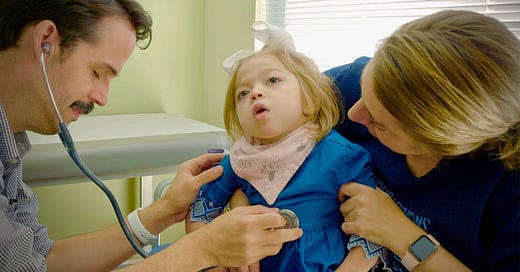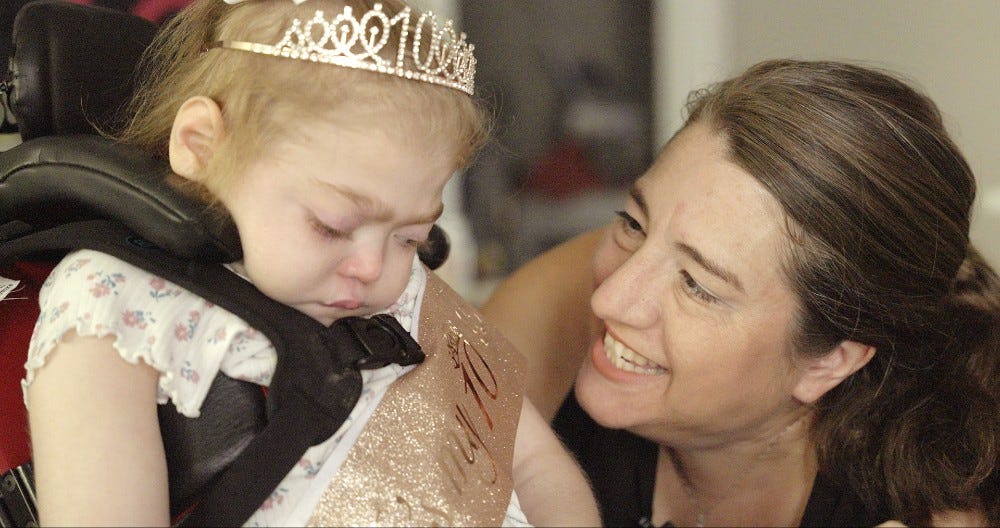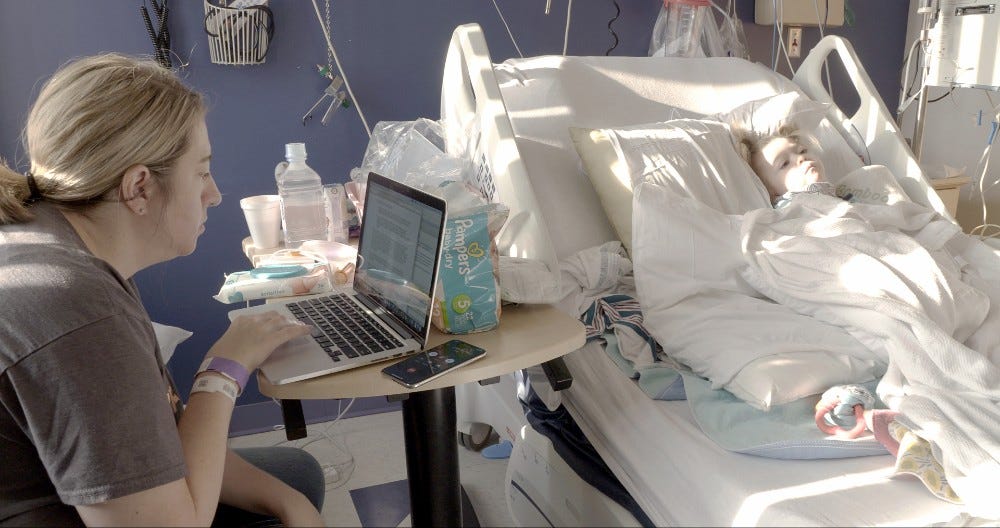THE ZEBRA AND THE BEAR REVIEW
“Does a brilliant job raising awareness for MSD and other rare gene disorders.”
Directed by Patrick O’Connor, the documentary The Zebra and the Bear follows the journey of Mississippi mother Amber Olsen after her four-year-old daughter Willow has been diagnosed with Multiple Sulfatase Deficiency (MSD), a rare and life-threatening genetic disorder that might not allow her to live past the age of ten. Willow would require a specialized gene therapy treatment, but being such a rare disease, Amber would have to take it on herself to raise the millions of dollars to develop the proper treatment for her daughter, finding all the right doctors and scientists for clinical trials.
I was a little anxious about watching this doc when I first was reading about it, since it’s about a young child dealing with a rare life-threatening genetic disorder. The very thought of any child dealing with such an illness is something that has bothered me ever since I was diagnosed with leukemia twelve years ago and realized how much tougher it would be for a child to deal with what was involved with my own treatment.
I was also a little concerned as the film began once I realized that it was narrated by Amber Olsen herself, because her narration seemed quite primitive in terms of the writing and delivery, which made me worry that this film is merely a vanity project. Those worries proved to be unfounded, even if this is a deeply personal film. The thing about documentaries as personal as this one is that it makes things tough as a critic to watch them and start pointing out any problems, because these are real people’s lives, it’s not just a movie that’s been made frivolously. Because of this, I decided to continue watching the film, and fortunately, it did get better as it got deeper into what was necessary to treat Willow and save her life.
The film covers seven years in the lives of Willow and Amber i.e. the zebra and bear of the title, beginning in the years before COVID hit and then continues through the pandemic as other things (like Amber getting divorced from Willow’s father) begin to add to Amber’s burden. The biggest hurdle is that Willow’s MDS is so rare that pharmaceuticals don’t want to spend the money to do the research necessary to find the proper treatment, because so few children have been diagnosed with the same rare strain as Willow. Olsen is clearly very smart in terms of the amount of research she does in terms of what would be necessary to begin clinical trials on a potential cure for MSD, even starting the United MSD Foundation to help raise funds. For Amber, it’s more than just saving her own daughter, and she uses her resources to find other children suffering from MSD across the world.
Willow is adorable, and you can’t help but feel for how helpless she is, while her mother is doing so much to learn the best way of dealing with her daughter’s condition. The reason The Zebra and the Bear works as well as it does is that you’re learning about this important and complicated science through a person who can talk on the same level as the viewer, even when getting testimonials from doctors and scientists. Through the film, we watch Amber trying to raise money for this crucial treatment, and we learn about how things work on the scientific side of things by breeding mice that can be treated specifically for MSD.
I was also interested to learn that director Patrick O’Connor brought an earlier film to the Oxfilm regional film festival, which I used to attend regularly for a few years. In fact, I may have been on the jury when his doc, Look Away, Look Away, premiered at that festival, and I may even have met the filmmaker. I’m not sure if The Zebra and The Bear was ever submitted for festivals, and actually, I’m not even 100% sure of the film’s distribution plans. (There’s a link below if you’re interested in learning more about MSD.)
By the end, the film has grown on you, as has Amber as the film’s narrative POV, and it ends in a particularly moving way with an end credits montage of all the kids with MSD, some who have lost their lives but others whose lives may have been improved from the results of Amber’s journey with Willow.
The Zebra and the Bear is certainly a weepy film to watch, since you really feel for both Amber and Willow, but it also does a brilliant job raising awareness for MSD and other rare gene disorders and what is involved with finding treatments and eventually curing them in a way that never feels overly clinical. Even more than that, it ably gets into the science of fighting such genetic disorders from an incredibly personal place.
Rating: 8/10
Although The Zebra and the Bear isn’t currently available to view in theaters or On Demand, if you’re interested in the film or its subject, you can keep up on the film’s journey via its Official Website.






Lovely review. Definitely will look out for this one